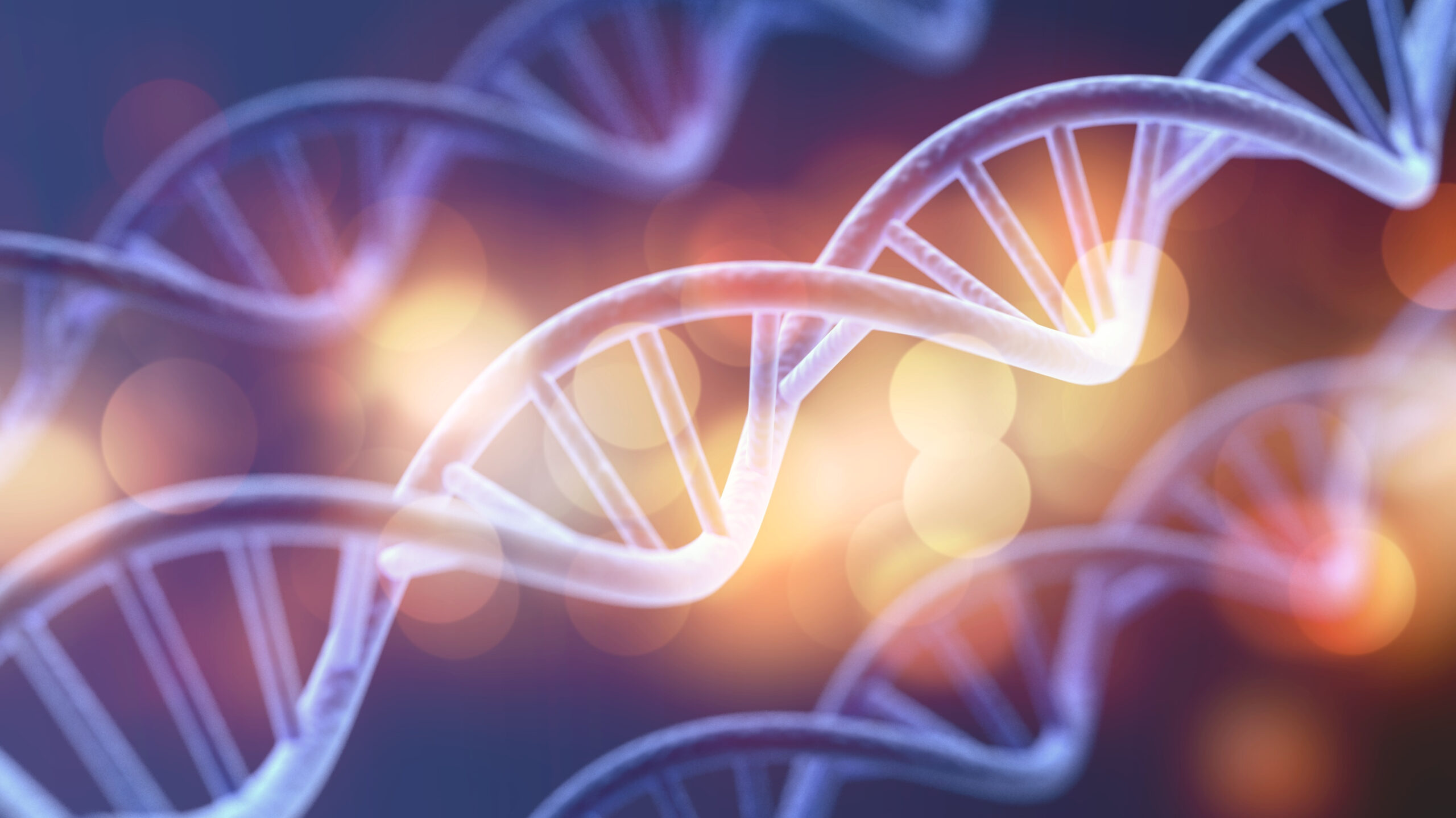Let’s talk about GENES
What are they and what do they do?
The human body is made of trillions of tiny building blocks called cells. Almost all cells contain a nucleus, which is the control center of the cell.
- The nucleus contains our genetic material, called deoxyribonucleic acid or DNA, which is organized into pairs of thread-like structures called chromosomes. Passed from parents to children, DNA contains the specific instructions that make each person unique.
- A gene is usually a short section of DNA that contains instructions for making a specific protein or set of proteins
- Proteins are the molecules that build and maintain our bodies.
Imagine genes as miniature instruction manuals within our cells, resembling “blueprints” that tell our body how to grow and work. These instructions are written in a language called DNA and located within our cells.
Generally, we receive (“inherit”) one copy of a gene from each parent – one from our mother and one from our father.
Humans have about 20,000 to 25,000 genes! Genes play a critical role in determining traits, including physical characteristics like eye color and height, and many genes contain instruction manuals to make important proteins that help our body work properly. Changes to genes can sometimes lead to the development of genetic conditions.
Let’s explore how these genes use their instructions to make proteins – the essential “workhorses” of our cells.
Proteins – Genes are like instructional manuals that guide the body to make proteins. Proteins are critical in carrying out different tasks and functions in our body, including building and repairing, fighting off infection, and helping our organs work properly.
Mutations – Mutations, also known as variations, occur when there are changes or differences to the language, or DNA, that make up a gene. These mutations can affect the genes’ ability to make a protein and therefore affect how well the protein can function. The effects of mutations can vary widely, with some causing genetic conditions and others heightening the risk of developing conditions.

Did You Know?
Your cardiomyopathy may have been caused by a
genetic mutation.
Conditions like cardiomyopathy, heart failure, and arrhythmias can be due to a gene mutation and often run in families. As a matter of fact, more than 50% of these conditions may be due to an inherited genetic mutation. Recognizing a pattern in families highlights the importance of seeking out genetic testing for a complete understanding of the cause or risk of cardiomyopathy.
How do I know if I have a genetic mutation that can cause cardiomyopathy?
Genetics & Cardiomyopathy
Several specific genetic mutations have been linked to cardiomyopathy and other heart conditions. Knowing whether one of these gene mutations is present can help someone better understand their risk of developing a condition and make important health decisions.
- Genetic Testing: To know if you have a genetic mutation that can cause cardiomyopathy, you need a genetic test. With the help of scientific achievements/advancements, people can now take a genetic test to receive an accurate and early cardiomyopathy diagnosis.
- Genetic Counseling: Part of the genetic testing process may also include seeing a genetic counselor. A genetic counselor is a healthcare professional who can help you and your family understand the genetic testing process, including possible outcomes of the tests, your test results, the way a genetic condition is inherited, and your chance of passing it on to your children. Part of the genetic counseling visit will include a family health history assessment. In this assessment, your genetic counselor will inquire about your family’s medical history, paying particular attention to any relatives who have had cardiomyopathy or experienced sudden cardiac events. If there’s a pattern of heart conditions in your family, it could suggest a genetic connection which may mean further testing is required.
Get genetically tested and help us save lives
Changes to genes can play a big role in increasing the chance of a person developing cardiomyopathy. However, having a mutation in a gene associated with cardiomyopathy doesn’t guarantee that someone will develop the condition. It’s important to understand that these conditions often run in families, highlighting the importance of genetic testing and counseling.
Genetic testing tells you important information about your health to help understand risk and early management of potential diseases. Genetic testing is an invaluable tool for early diagnosis and making informed medical decisions.


